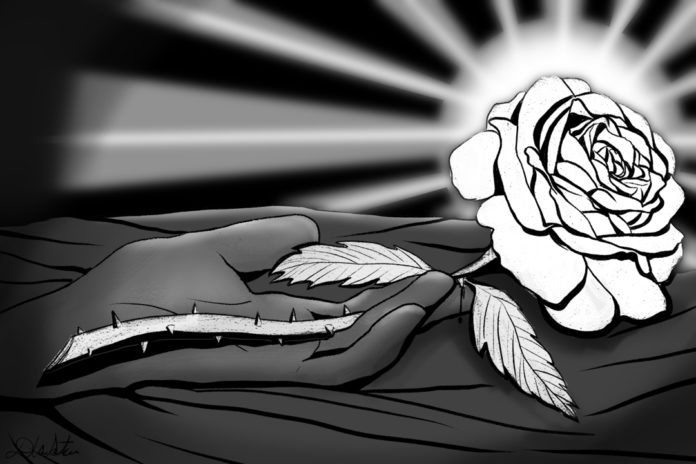The “loss” of one’s virginity has no straight-forward definition; virginity is a social construct and a patriarchal concept. It is drilled into the minds of females that we must remain “pure” or risk being just another notch on a man’s bedpost.
I spent the formative years of my life, from ages 15 to 23, heavily involved in the Christian church and working for Christian organizations. I was generally taught that a virgin is someone who has never had penetrative sex, specifically vaginal penetration. As you may know, there are many sexual acts outside of vaginal penetration a couple can perform together. This is how I remained a “virgin” until I was 26, even though my first sexual encounter was at 16.
The Christian church puts a lot more pressure on women to remain “pure” than they do on men. If you’ve read the Bible cover-to-cover, you may be appalled that heroes of the faith like Samson and King David would hypocritically hire sex workers and rape women, all while women are dragged out into the street to be stoned for adultery. In some cultures, the bride must prove her virginity by presenting a blood-stained bed sheet to her family and in-laws on her wedding night to prove that her hymen was not stretched or torn prior. In many cultures, including the culture featured in the Bible, women were viewed as property whose greatest accomplishment would be bearing children. Before marriage, women would belong to their father, until they would be “given away” by one male guardian at their wedding to their next male guardian — their husband, whose name they would take to signify this transfer of ownership.
“Purity culture” has been one of the most toxic traits of modern evangelical churches. Christian youth groups almost specialize in teaching shameful metaphors and false narratives about sexuality to teenagers. Imagine that you’re a piece of gum, and every boy you have had a sexual encounter with has chewed on you, and by the time your husband chews on you, all your flavour has been lost and you are nothing but a chewed-on glob of old gum. That was the type of teaching I was exposed to as a young girl learning about my sexuality for the first time. Another popular teaching was that we develop “soul-ties” to people we have sex with that cannot be broken and that will forever interfere with our future marriage.
We should change the language from “losing” our precious virginities into making our sexual debuts, whatever that may look like. My worth doesn’t change whether or not some guy has stuck his penis inside of me. There is no shame whether your first sexual encounter was at the age of 14 or 54; virginity is a patriarchal concept meant to make women feel guilty over our “impurity” or shameful about our sexual desires. Having sex for the first time can be a big deal for some people, and how you define your sexual debut is totally up to you. Sex should be special everytime you have it, with every person you have it with, not just the first time. If you are planning your sexual debut soon, here is the greatest piece of advice I can give you: bring condoms.
Image: Danyka Van Santen/The Cascade
Andrea Sadowski is working towards her BA in Global Development Studies, with a minor in anthropology and Mennonite studies. When she's not sitting in front of her computer, Andrea enjoys climbing mountains, sleeping outside, cooking delicious plant-based food, talking to animals, and dismantling the patriarchy.


